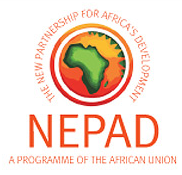As part of the New Partnership for Africa's Development (NEPAD) Vision 25 x 25, which aims to reach 25 million African farm households by 2025, the recently launched Africa Climate-Smart Agriculture Alliance (ACSAA) initiative will ensure that six million smallholders in Africa are practicing climate-smart agriculture (CSA) within the next seven years.
 8 December 2014: As part of the New Partnership for Africa’s Development (NEPAD) Vision 25 x 25, which aims to reach 25 million African farm households by 2025, the Africa Climate-Smart Agriculture Alliance (ACSAA) initiative will ensure that six million smallholders in Africa are practicing climate-smart agriculture (CSA) within the next seven years. The initiative will address multi-sectoral issues surrounding African smallholder farmers’ vulnerability to climate change; and build the capacity of national institutions and community-based organizations to transfer climate-smart farming skills to rural households.
8 December 2014: As part of the New Partnership for Africa’s Development (NEPAD) Vision 25 x 25, which aims to reach 25 million African farm households by 2025, the Africa Climate-Smart Agriculture Alliance (ACSAA) initiative will ensure that six million smallholders in Africa are practicing climate-smart agriculture (CSA) within the next seven years. The initiative will address multi-sectoral issues surrounding African smallholder farmers’ vulnerability to climate change; and build the capacity of national institutions and community-based organizations to transfer climate-smart farming skills to rural households.
To discuss these goals as well as guiding principles and practical applications on the ground, the ACSAA hosted a panel discussion at the margins of the Global Landscapes Forum (GLF) in Lima, Peru. At the discussion, Agroecologist Todd Rosenstock of the World Agroforestry Centre (ICRAF), an Alliance partner, said that the flexibility of the package of practices under the CSA umbrella “enables the evaluation of the relative importance of food security, adaptation and mitigation in the local context.” Christopher Shore, World Vision International, another Alliance partner, said smallholder farmers remain “unacceptably economically poor” and urged replacing dependency with empowerment, and not expecting “magic bullets” to solve the multiple challenges faced by smallholder agriculture in Africa.
According to World Vision International, smallholder farmers represent 80% of sub-Saharan Africa’s farming population, and disproportionately suffer from droughts, floods and other weather-related events. Thus, adopting more resilient, productive, sustainable, equitable and increasingly efficient farming practices is necessary. CSA offers a ‘triple win’ for farmers: enhanced food security by increasing the reliability and productivity of agricultural livelihood activities; increased smallholder resilience and adaptation to climate change; and reduced greenhouse gas emissions from agriculture and improved carbon sequestration.
The Alliance was officially launched in June 2014 by NEPAD and brings together the public sector and research and civil society organizations to scale up on-farm assistance, link to technological advances and support a favorable policy environment. [GLF News] [World Agroforestry Centre News] [NEPAD News]